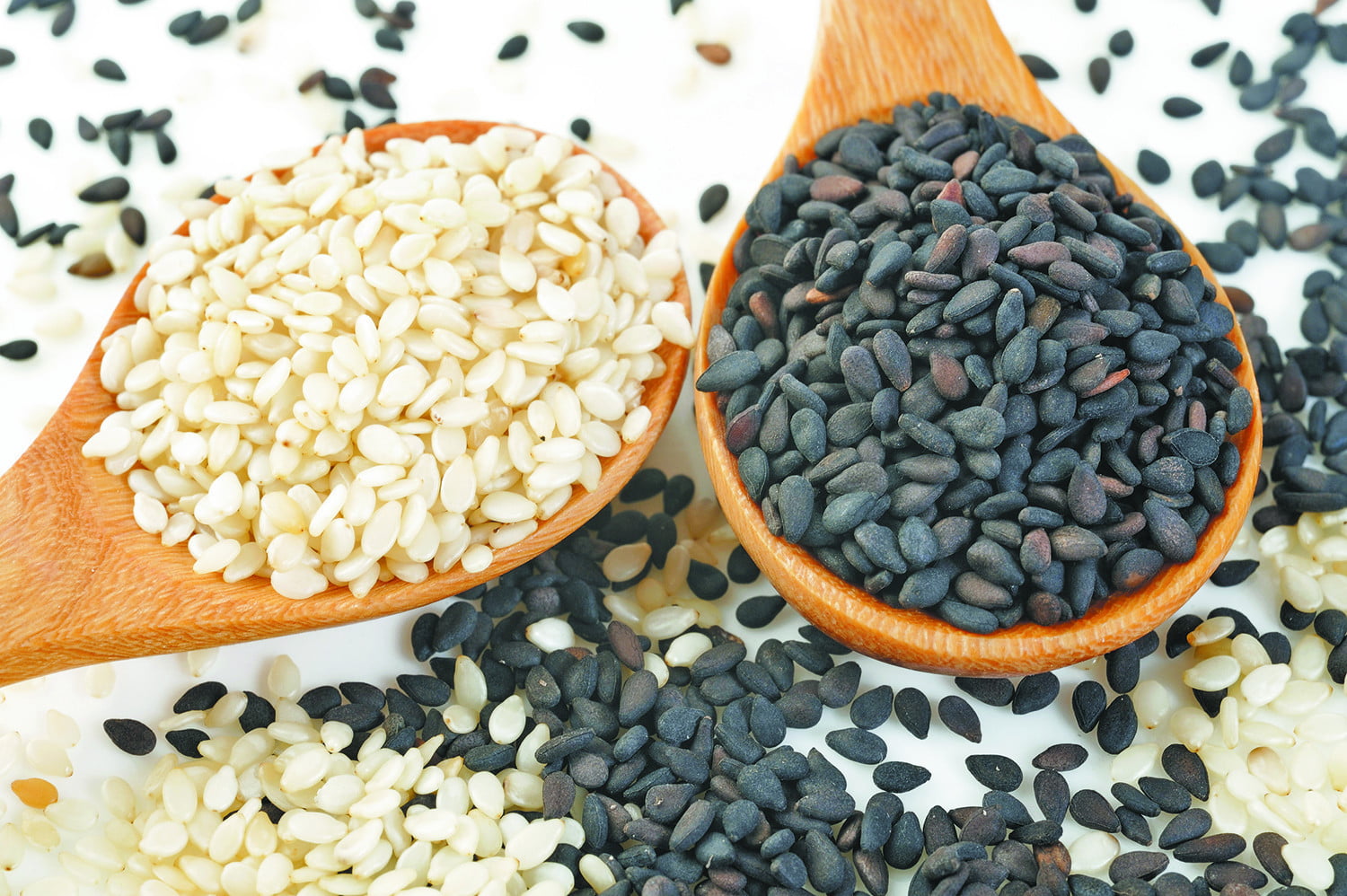Sesame seeds are one of the oldest oilseed crops known, domesticated over 3,000 years ago. Revered for their nutritional benefits and distinctive flavors, sesame seeds are used extensively across various cuisines worldwide. Among the diverse types of sesame seeds, white and black sesame seeds stand out as the most popular varieties. Each type holds its own unique characteristics and uses in cooking, which can be intriguing for both culinary enthusiasts and health-conscious consumers.
Origin and Cultivation
Both white and black sesame seeds come from the plant Sesamum indicum, part of the Pedaliaceae family. The plant is highly adaptable to different soil types, though it thrives best in well-drained, fertile soils. It is predominantly grown in tropical regions across Africa and parts of India, with each region often specializing in a specific variety of sesame seed.
The main difference in the cultivation of white and black sesame seeds lies in the harvesting process. White sesame seeds are generally hulled and fully matured seeds that have had their outer shells removed, presenting a paler, smoother appearance. Black sesame seeds, on the other hand, are left unhulled and are harvested from a different variety of sesame plant known for its characteristic darker seeds.
Nutritional Content
Sesame seeds, irrespective of their type, are highly nutritious. They are rich in healthy fats, protein, B vitamins, minerals, fiber, and antioxidants. However, the nutritional profiles of white and black sesame seeds do differ slightly due to their processing and the plant variety.
Black sesame seeds are particularly noted for their higher content of certain nutrients. They contain more calcium and iron than white sesame seeds, primarily because their hulls, rich in minerals, are intact. They also have higher levels of antioxidants, such as sesamin, sesamolin, and sesamol, which may provide added health benefits, including anti-inflammatory properties and improved lipid profiles.
On the other hand, white sesame seeds still retain ample health benefits and are often preferred in recipes that require a subtler flavor. They are particularly rich in copper, which is essential for iron metabolism and the formation of red blood cells.
Culinary Uses
The culinary applications of white and black sesame seeds are vast and varied. White sesame seeds are commonly used in baking and cooking for their delicate, slightly sweet flavor. They are often sprinkled on bread, rolls, and pastries to add a hint of crunch and taste. They are also used to make tahini, a paste that is a staple in Middle Eastern cuisine and is the base for dishes like hummus.
Black sesame seeds have a more pronounced, earthier flavor compared to their white counterparts. They are a staple in Asian cooking, sprinkled on rice, noodles, and stir-fries, and are used in the making of desserts, such as the Japanese black sesame ice cream. Black sesame seeds are also ground into a powder and used in seasoning blends, adding a rich, nutty flavor to an array of dishes.

Health Benefits
The health benefits of sesame seeds are notable. They are known to support cardiovascular health due to their high magnesium content, which helps lower blood pressure. The high zinc content helps boost bone mineral density and overall bone health, particularly pertinent in the case of black sesame seeds due to their calcium content.
Additionally, the oil from sesame seeds is considered beneficial for the skin. It has an anti-aging effect, helping to prevent the skin from ultraviolet light damage, and is often used in cosmetics for its moisturizing and softening properties.
Cultural Significance
Culturally, sesame seeds hold significant value in many traditions around the world. They are considered symbols of immortality and prosperity in Hinduism and are used in rituals and ceremonies. In Japanese culture, black sesame seeds are believed to promote health and longevity, a testament to their rich nutritional profile.
Conclusion
Both white and black sesame seeds offer a plethora of culinary and health benefits that make them a valuable addition to many dishes. While they share many similarities, the differences in their flavor, texture, and nutritional benefits cater to different culinary needs and health preferences. Whether used in sweet or savory dishes, these tiny seeds pack a wholesome punch, making them a must-have in any kitchen pantry.
From a chef’s perspective, understanding the distinct characteristics of white and black sesame seeds can enhance the flavor profiles of various dishes. From a health perspective, incorporating both types of seeds into your diet can contribute to a well-rounded nutritional intake. Thus, whether you prefer the subtle sweetness of white sesame or the robust richness of black sesame, both varieties offer unique and beneficial elements that are worth exploring.
Ajigofarms is a reliable global agricultural purchase sourcing with profound expertise in the manufacturing, and exportation of food crops. We are tested, and trusted suppliers of all kinds of cash crops and food crops. Our constant supply chain solution makes exporting easy, quick, and safe, we are identified with timeliness and meeting up with deadlines. Regardless of the region you are located in worldwide, you can reliably order your Agric products and be rest assured of successful delivery.




